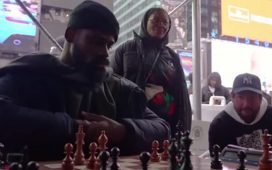With an important training session soon due to get under way at Cardiff Metropolitan University, Christian Edwards glances at his watch. He needs to put the players through their paces, wash some kit, pack another couple of strips into his VW transporter van, finish his academic work and then remember to settle the bill for the spaghetti bolognese he has pre-ordered for a party of 40 the next day. “I’ve received 14 phonecalls just since we’ve been chatting,” says Edwards, shaking his head and smiling at the madness of it all.
Edwards is the former Swansea City, Nottingham Forest and Bristol Rovers defender in charge of Cardiff Met, who will become the first British University men’s side to play in European competition when they take on Progrès Niederkorn in Luxembourg on Thursday. The students beat Bala Town in the Welsh Premier League play-offs last month to take their place in the preliminary round of the Europa League, creating a little bit of history in the process and putting a fresh slant on the phrase “intelligent footballers”.

“The squad used to be top heavy with undergraduates,” says Edwards. “These days we’re top heavy with PhDs and postgraduate students and then a small amount of undergraduate students, so for a footballing university team we’re very experienced. Some players are approaching 300 games for the team. And we’ve got varying backgrounds. Two of our players came from the professional game, one has captained Hereford at Wembley, and then you’ve got some boys who have never been at an academy in their lives – we’ve got five farmers from the west.”
Their success is quite a story and, in fairness, one that should be framed around Edwards being described as much more than an ex-footballer, mindful of the fact that since retiring from the professional game in July 2006, the 43-year-old has gone on to gain a first-class honours degree at undergraduate level, a distinction in his masters and a PhD.
Edwards spent four years on the latter and his doctoral work – “examining the sociological significance of humour and how it is used as a critical component in the negotiation of coaching relationships” – means far more to him than representing his country and everything that came with his career as a footballer, including the David Beckham, Alan Shearer and Fernando Redondo shirts that are packed away somewhere in his loft. “I’ve got senior Welsh caps, played in the Premier League etc, but that [the PhD] is the best thing I’ve ever done, because I wasn’t expected to succeed in education,” Edwards says.
Edwards certainly did not expect to return to football after hanging up his boots and enrolling as a student at Cardiff Met. He had been spending his spare time watching rugby when he answered a call for help. “The chief executive of the student union, Mike Davies, said they were going to pull the football programme because it was pointless, and asked if I fancied taking over,” recalls Edwards. “I wasn’t really interested in the football team and didn’t even know what level they played at. So I looked and we were at the bottom, the armpit of Welsh football. But they said they’d pay my masters fees, so it was a case of ‘Where do I sign?’”
A decade on and as well as having “Dr” before his name – something that caused confusion with one former Forest teammate who wondered whether the Welshman was now in a position to sort out knee problems – Edwards has a total of five promotions on his CV, just about every coaching qualification going and is totally immersed in the role.
He earns his living in the lecture theatre; managing the football team is voluntary and none of the players get paid either. In fact, the students hand over £150 to cover the annual membership fee. “We’ve survived off loyalty from the players. And I’m loyal to them,” Edwards says. “I don’t get paid for the football. My role is as a senior lecturer [in sports coaching science]. Like the rest of the players, I could probably work elsewhere and get X amount per week but I wouldn’t get the same enjoyment, buzz and fulfilment. Whereas at most places it’s about entitlement.”
A principled man who “doesn’t do egos”, Edwards put a rule in place from day one that anyone playing for the university has to be either a student or alumni. On top of that, he expects his team to deliver – and not just on the pitch. “If I find out they’re not in classes, they’re in trouble, they know that. But then the dressing room looks after that. No one would dare come in and say they had a 45 or a 50. Come in and say you got a 65 or a 70, yeah. That’s the work ethic the boys have. They’re embarrassed to get a poor mark.”
It is tempting to wonder what their opponents in Luxembourg make of it all. Edwards is hoping that there may be a little bit of complacency. “I think they’ll be at the level of our champions, TNS. We played them on Friday, deliberately so for the mindset to be right. We know it’s going to be a hard test for us. But they may well underestimate students.”

Whatever the outcome over the two legs, Cardiff Met are guaranteed £193,000 in prize money for reaching this stage and although none of that will end up in the pockets of the staff or students involved, Edwards has been turning a few ideas over in his mind. “I think we need to sit down and look at how we can reward the players’ loyalty,” he says. “What that looks like, I don’t know. Maybe we get a holiday next year as a group.”
Perhaps a trip to Las Vegas? “Maybe not Vegas,” says Edwards, looking a little taken aback at that suggestion. “Maybe the Mumbles.”






